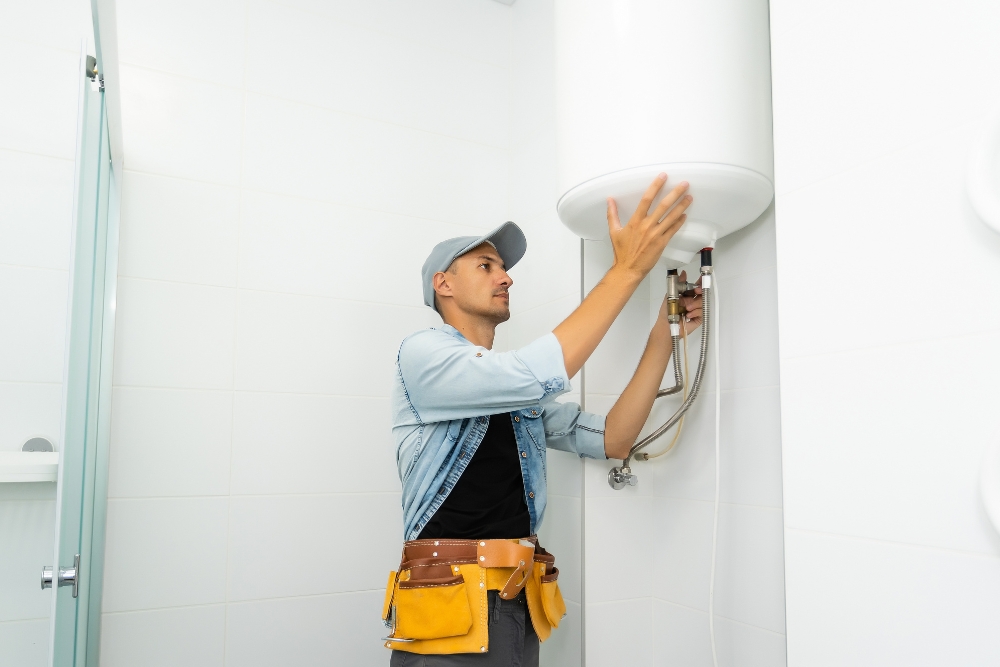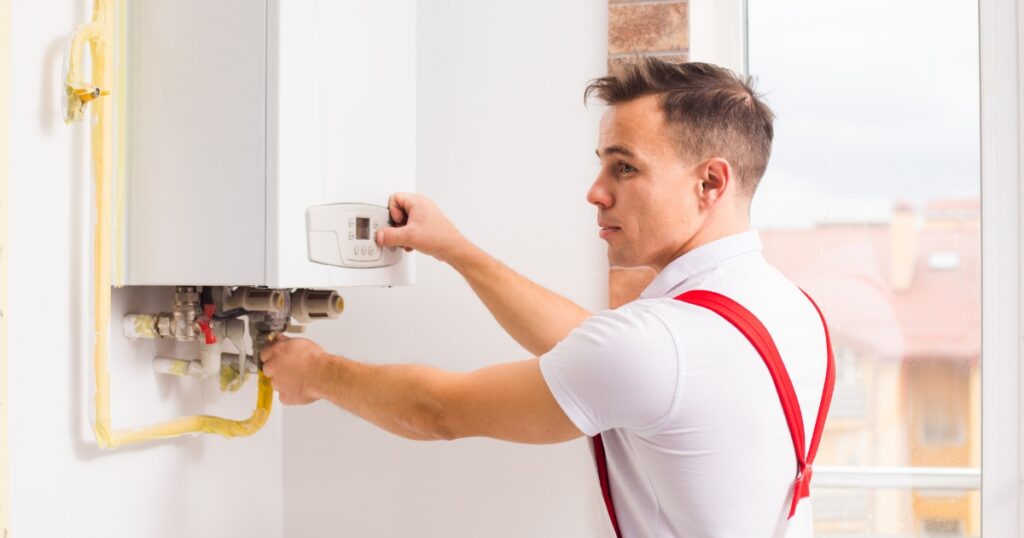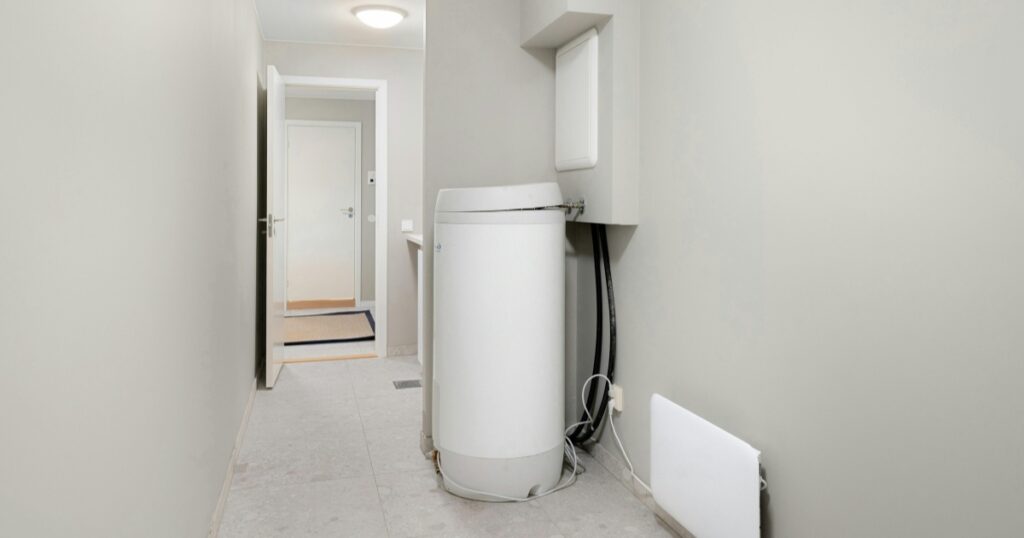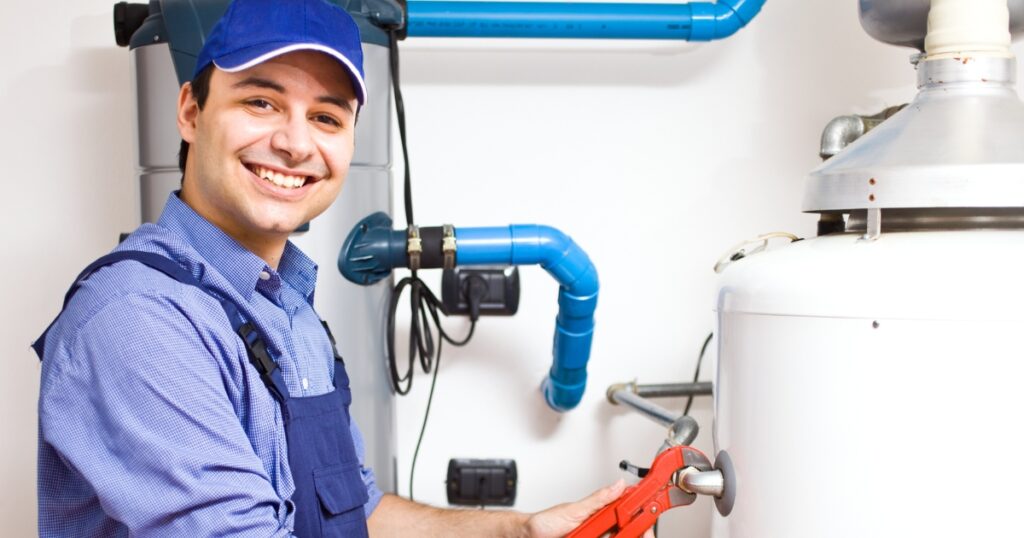Having a bit of a bother with your hot water because your pump’s making all sorts of funny noises? No worries, mate – you’re not the only one. A lot of us have run into this snag and found out that cavitation in pumps is often the cheeky culprit, especially when messing with centrifugal pumps in hot water systems.
This yarn will walk you through understanding, diagnosing, and sorting out cavitation issues so your hot water keeps on flowing smooth as silk. Stick around for some handy tips to get it all ship-shaped!
Key Takeaways
- Pump cavitation can damage your hot water system by creating air bubbles that collapse and cause wear. Regular checks and maintenance are essential to keep everything working right.
- It’s important to choose the right pump for your system, taking into account things like flow rate and the type of fluid being pumped. Proper selection helps prevent cavitation issues from starting.
- Keeping an eye on symptoms like strange noises, increased energy use, or damage to pump parts can help catch cavitation early before it gets worse.
- Ensure the pump’s inlet conditions are good by keeping filters clean and fixing any blockages or leaks. This helps stop low-pressure problems that lead to cavitation.
- Professionals can really help sort out tough problems with your hot water service pump. If you’re facing issues with cavitation, getting expert advice might save you time and money in fixing them.
Understanding Pump Cavitation
Pump cavitation occurs when low pressure causes bubbles to form in the pump, leading to damage and decreased efficiency. It can result in issues such as reduced flow rates, increased energy consumption, and eventual pump failure.
What is pump cavitation?
Pump cavitation is a bit of a troublemaker in our centrifugal pumps, especially those we rely on for hot water service. It happens when air bubbles form and then burst within the fluid that’s moving through the pump.
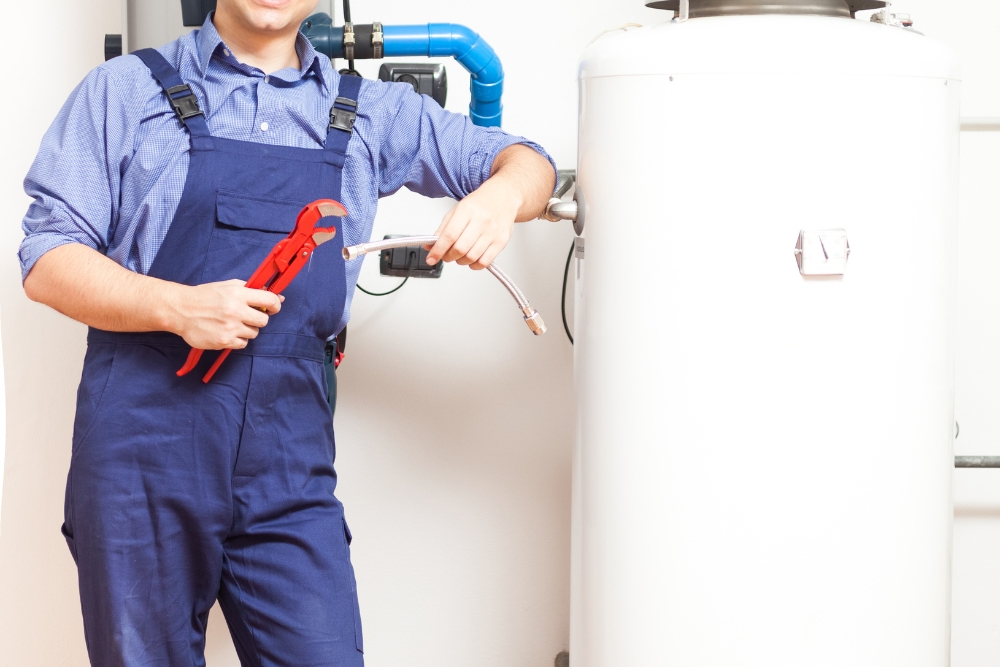
This isn’t just an odd occurrence; it actually leads to some serious problems, like damaging the pump and making it noisier than a rowdy party.
Those pesky air bubbles are not as harmless as they might seem at first glance. Their formation and collapse generate shockwaves that can physically wear down our pumps, leading to excess noise and increased energy usage, not to mention the potential for severe damage.
We’ve got to keep an eye out for causes such as inlet pressure dropping below what’s necessary or using hoses that don’t match up properly with our system requirements. This way, we avoid falling victim to these issues and maintain efficient operation of our hot water systems.
Types of cavitation
Two common types of cavitation include suction and discharge cavitation. Suction cavitation occurs when low inlet pressures cause the formation of bubbles in the fluid as it enters the pump, which later collapses.
Discharge cavitation, on the other hand, happens when high velocity causes a drop in pressure at the pump outlet, leading to bubble formation and subsequent collapse within the impeller region.
Both types can lead to significant damage to pump components if not identified and addressed promptly.
Symptoms of cavitation
Pump cavitation can lead to various symptoms that indicate potential issues with the hot water service pump. These symptoms include:
- Strange noises originate from the pump, which may indicate the presence of air bubbles collapsing within the fluid.
- Increased energy consumption due to the inefficiency caused by cavitation, leads to higher electricity bills.
- Damage to pump components such as impeller erosion and wear on the pump housing, resulting in decreased pump lifespan and functionality.
- Excess vibration during pump operation, potentially causing damage to surrounding plumbing and fixtures.
- Reduced water pressure and flow rate, impacting the performance of the hot water system and creating inconvenience for household activities.
- Variations in water temperature as a result of uneven circulation caused by cavitation affect the pump’s efficiency.
Understanding these symptoms can help homeowners identify and address cavitation issues promptly to prevent further damage to their hot water service system.
Causes of Pump Cavitation in Hot Water Service
Poor pump inlet condition, discharge cavitation, and low Net Positive Suction Head (NPSH) are common causes of pump cavitation in hot water service. These issues can lead to air pockets forming in the pump, resulting in reduced pump efficiency and potential damage to the system.
Poor pump inlet condition
When the pump inlet condition is poor, it can lead to cavitation issues in your hot water service system. This may occur due to blocked filters, blockages, or air leaks in the suction line.
An inadequate supply of water to the pump can cause a drop in pressure, leading to cavitation problems. Ensuring that the pump’s inlet condition is well-maintained and free from any obstructions is crucial for preventing cavitation and maintaining the efficiency of your hot water service pump.
Addressing any issues with poor pump inlet conditions promptly can help prevent damage to the pump components and reduce energy consumption. Regular inspection and cleaning of filters and suction lines will aid in ensuring a smooth flow of water into the pump, minimising the risk of cavitation.
Discharge cavitation
Addressing discharge cavitation is crucial in preventing hot water service pump issues. When a pump operates at a flow rate beyond its design capacity, it can lead to discharge cavitation.
This occurs when the pressure at the pump outlet drops below the vapour pressure of the fluid, causing bubbles to form and collapse with high velocity, leading to damage and noise. To prevent this, ensure that the system design matches the actual flow requirements and that any blockages or restrictions in the discharge line are removed.
Regular maintenance is essential in identifying and rectifying potential causes of discharge cavitation before they become significant problems.
Low Net Positive Suction Head (NPSH)
Low Net Positive Suction Head (NPSH) can lead to pump cavitation issues in hot water service systems. When the pressure at the suction side of the pump falls below the required NPSH, it causes air bubbles to form and collapse within the fluid, leading to damage and noise.
This can be a common occurrence in boiler systems due to inadequate inlet pressure, resulting in cavitation problems that affect pump performance.
Understanding NPSH is crucial; maintaining proper inlet pressure through regular monitoring and maintenance can help prevent cavitation issues. By ensuring that the suction side of the pump maintains adequate pressure levels, you can mitigate the risk of cavitation and protect your hot water service system from unnecessary damage and inefficiency.
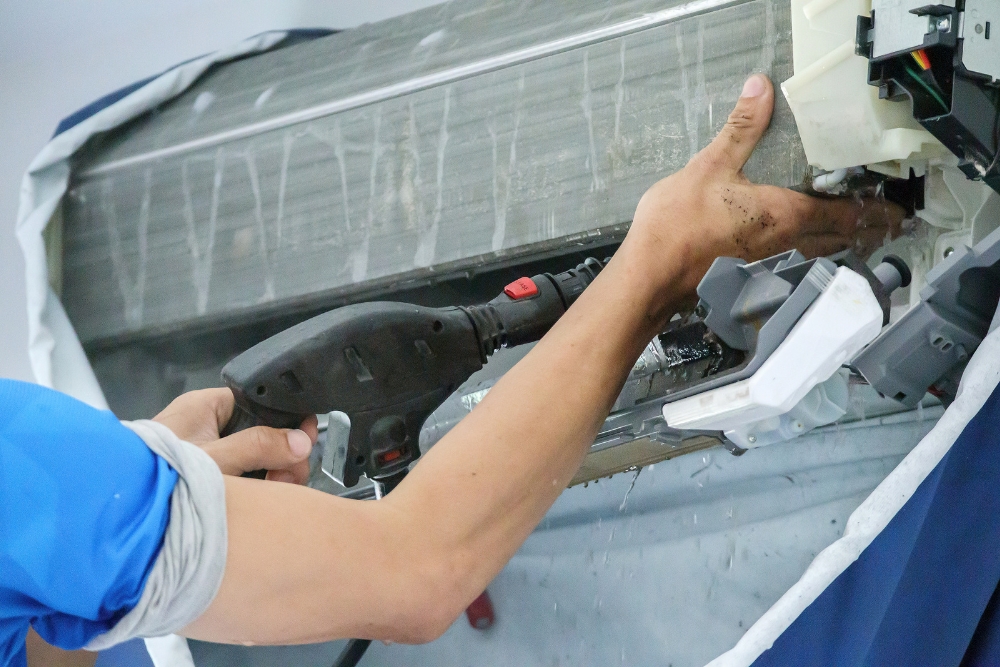
Signs of Pump Cavitation
Listen for strange noises from the pump, look out for increased energy consumption, and watch for any damage to pump components as these could be signs of pump cavitation. For more information on how to prevent and address these issues effectively, dive into the full article.
Strange noises from the pump
If your hot water service pump is making strange noises, such as high-pitched whine or rumbling sounds, it could be a sign of pump cavitation. These noises occur when air bubbles collapse inside the pump, causing damage and inefficiencies.
Ignoring these sounds can lead to more serious problems down the line.
Addressing strange noises from the pump promptly is crucial for preventing further damage and ensuring efficient operation. It’s essential to pinpoint the cause of these unusual sounds and take action to resolve any cavitation issues before they escalate.
Increased energy consumption
We can fix issues with increased energy consumption by preventing pump cavitation. When air bubbles implode within the pump, it causes excessive noise and damages components, leading to higher energy usage.
Preventing cavitation through proper pump selection and routine maintenance helps avoid inefficiencies and lowers energy costs for hot water service systems.
Pump cavitation is known to cause excess noise and material damage in addition to increasing overall operating costs. By addressing the root causes of cavitation, such as poor pump inlet conditions or discharge cavitation, homeowners can effectively reduce their hot water service system’s energy consumption while also extending the lifespan of their pumps.
Damage to pump components
Pump cavitation can cause significant damage to pump components, leading to increased maintenance and repair costs. The rapid formation and collapse of air bubbles within the pump can erode impeller vanes and other internal parts, compromising the overall efficiency and performance of the system.
As a result, it is essential to address pump cavitation issues promptly to prevent further deterioration of vital components.
Neglecting pump cavitation problems can also result in a reduced lifespan of the entire hot water service system. Over time, damage caused by cavitation can lead to costly replacements or extensive repairs for various pump parts.
How to Prevent Pump Cavitation
To prevent pump cavitation, ensure proper pump selection considering NPSH and system requirements. Addressing discharge cavitation through impeller adjustments or pipeline modifications is also crucial for preventing pump cavitation issues.
Proper pump selection
Selecting the right pump for your hot water system is crucial in preventing cavitation issues. We must consider factors such as flow rate, NPSH requirements, and the type of fluid being pumped.
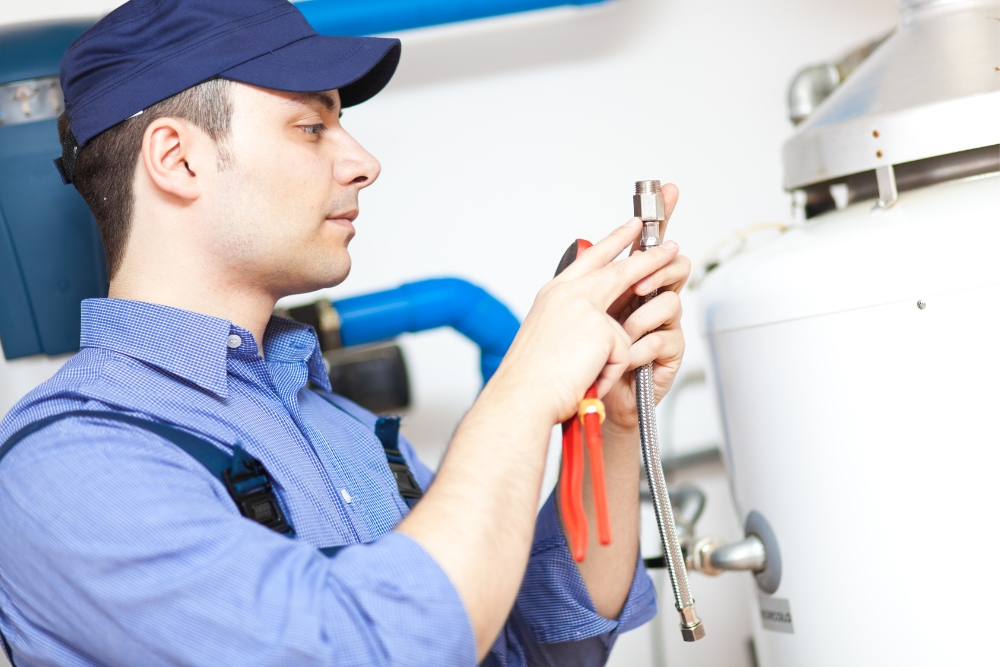
Ensuring that the pump generates adequate suction pressure at the inlet can help prevent air pocket formation and subsequent cavitation problems, leading to a more efficient and reliable hot water service.
When choosing a pump, it’s important to prioritise those specifically designed for hot water circulation applications to ensure optimal performance and longevity. Properly sized pumps with appropriate flow rates will minimise the risk of cavitation while maintaining an efficient water heating system.
Addressing discharge cavitation
To address discharge cavitation in hot water service pumps, it’s crucial to focus on the system’s design and operation. Ensuring that the discharge piping is properly sized and free from any restrictions can help prevent this type of cavitation.
Additionally, maintaining a smooth flow through the pump by avoiding sharp bends or elbows in the discharge lines is essential. This helps to reduce turbulence and pressure fluctuations, which are common culprits for discharge cavitation.
Regularly inspecting and cleaning the discharge side of the pump can also contribute to preventing discharge cavitation. By keeping an eye out for any build-up or debris that could obstruct flow, you can maintain optimal pump performance and efficiency.
Routine pump maintenance
To maintain the pump and prevent cavitation issues, it’s crucial to conduct routine maintenance checks on the system. Regularly check for any signs of wear and tear on the pump components, such as impeller damage or erosion.
Additionally, monitor the NPSH value to ensure that it remains sufficient for the pump’s operation. By scheduling regular inspections and maintenance activities, homeowners can effectively minimise the risk of cavitation in their hot water service pumps.
Ensuring proper lubrication of bearings and seals is essential in preventing unnecessary friction and heat buildup within the pump. This proactive approach can significantly extend the lifespan of your hot water service pump while reducing energy consumption and maintaining an efficient system.
Importance of preventing pump cavitation in hot water service
Preventing pump cavitation in hot water service is crucial to maintaining the efficiency and longevity of your system. Cavitation can lead to excessive noise, increased energy consumption, and damage to pump components, affecting the overall performance of your hot water service.
By addressing potential causes of cavitation, such as poor inlet conditions or discharge cavitation, and ensuring proper maintenance, you can avoid these issues altogether.
Regular monitoring and selecting the appropriate pump for your system are essential steps in preventing cavitation. Proper planning during the design phase will also help mitigate any potential problems associated with cavitation.
Contacting a professional for assistance
If you notice any signs of pump cavitation or suspect issues with your hot water service pump, it is vital to involve a professional for assistance. Experienced professionals can accurately diagnose the problem and provide expert solutions tailored to your specific needs.
Their expertise ensures that the underlying causes of cavitation are effectively addressed, helping to prevent further damage to the pump and ensuring optimal performance of your hot water system.
Professionals can conduct thorough inspections, identify potential factors contributing to cavitation, and recommend appropriate measures for prevention. By seeking professional assistance, you can benefit from their in-depth knowledge and technical skills in resolving pump cavitation issues, ultimately maintaining the integrity of your hot water service while avoiding unnecessary downtime and costly repairs.
Prompt Hot Water Services for Your Space’s Needs!
Preventing pump cavitation in hot water service systems is crucial to avoid noise, damage, and reduced efficiency. Contacting a professional for assistance can help address pump cavitation issues effectively.
Experiencing cavitation issues with your hot water service pump? Don’t let it disrupt your comfort any longer! Our team at Hot Water Repairs Today is here to provide swift and effective solutions.
Cavitation can lead to costly damage and inefficiencies in your hot water system. Our experts specialise in diagnosing and fixing pump cavitation issues promptly, restoring your system’s performance and extending its lifespan.
Don’t let cavitation cause further problems – reach out to us today for expert repair services and enjoy uninterrupted hot water in your home!

